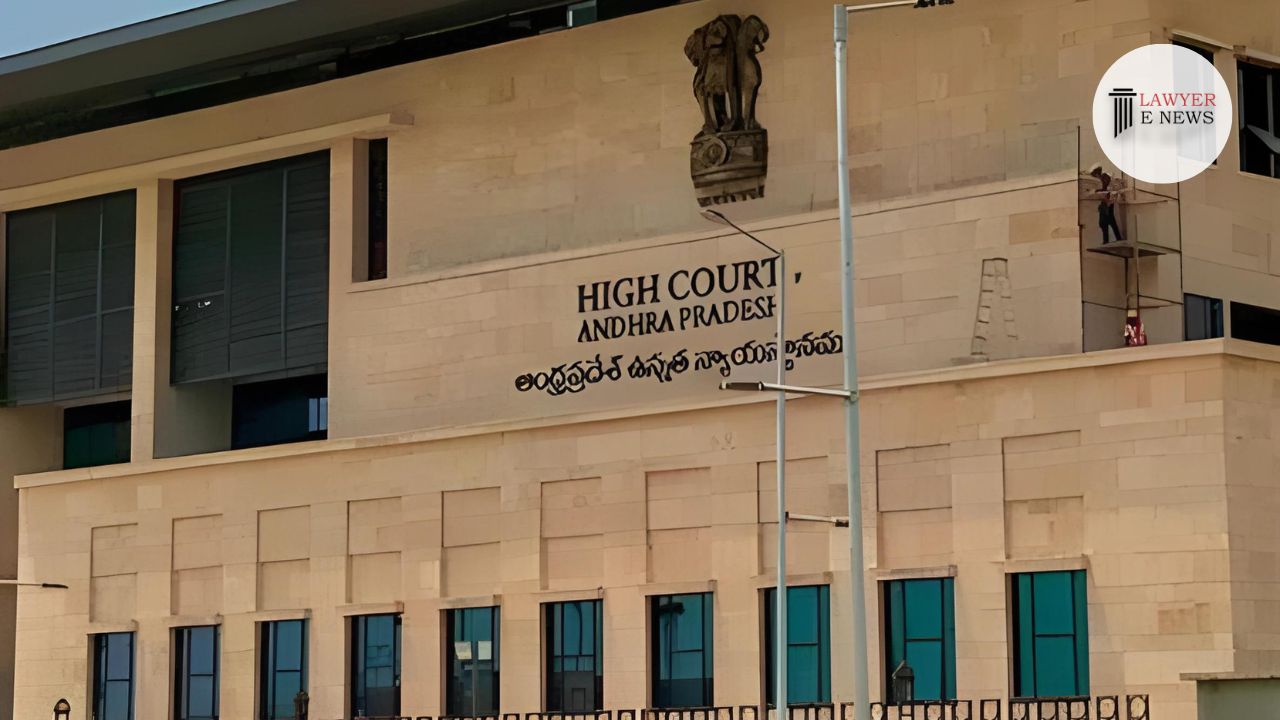-
by Admin
15 February 2026 5:35 AM



The Andhra Pradesh High Court has dismissed a second appeal challenging the decisions of the trial and first appellate courts in a longstanding title dispute concerning a property in Raparthi Village, East Godavari District. The plaintiff, Smt. Gudla Mahalakshmamma, sought a declaration of title and vacant possession based on a will, but the court found her evidence insufficient. Justice Dr. V.R.K. Krupa Sagar upheld the concurrent judgments of the lower courts, which denied her claims, citing inconsistencies in the evidence and failure to establish her title or possession.
The case revolved around a property in Raparthi Village, East Godavari District, bequeathed through a will dated 24.07.1971 (Ex.A.1) by the testator, Kambham Ramamurthy Reddy. Upon his death, the plaintiff, claiming under the will, sought a declaration of title and possession of the property, which comprised a two-room tiled house with a site area of approximately 180 square feet. The defendants, occupying the southern portion of the property, contested the claim, leading to litigation.
The trial court dismissed the plaintiff's suit (O.S.No.51 of 1989) for lack of evidence, and this decision was upheld by the first appellate court in A.S.No.10 of 1997. The plaintiff then filed a second appeal under Section 100 of the Code of Civil Procedure, 1908, raising substantial questions of law regarding prior possession and the legal presumption of title.
The key contention of the appellant was that her father's prior possession of the property established her better title. The court examined whether the plaintiff’s possession derived from her predecessor could suffice to declare her title. However, the evidence failed to substantiate continuous possession by the appellant or her predecessor, weakening her claim.
The court noted, "The appellant failed to demonstrate possession, let alone the title of her predecessor, as the property boundaries and measurements presented in the will did not match the actual situation on the ground."
One of the significant findings was a discrepancy between the plaintiff's claim of a 180-square-foot property and the survey report by the advocate commissioner, which recorded the area as 480 square feet. The court ruled that this mismatch cast doubt on the plaintiff’s claim.
Addressing this, the judgment observed, "Boundaries must correspond with the extent of land claimed, and without definitive boundaries in the will, the plaintiff's case cannot be accepted based on mere assumptions."
The court also highlighted the plaintiff's failure to produce crucial evidence, such as the alleged registered sale deed through which her father acquired the property. The plaintiff had shifted her stance during the trial, claiming an oral sale, which was not sufficiently proven.
In this regard, the judgment stated, "In a suit for declaration of title, the plaintiff must succeed based on her own evidence, not the weaknesses in the defendant's case. Here, the plaintiff has failed to establish the title through the will or otherwise."
Another issue raised by the plaintiff was a letter (Ex.A.6) allegedly admitting the title by the defendants. However, the court found that the letter was made under duress in a police station, and thus not free or voluntary as required by the Indian Evidence Act. The court refused to accept this as an admission of title.
The court remarked, "Admissions made under duress or without full knowledge of legal rights cannot be considered valid in establishing title over immovable property."
The High Court reaffirmed the principle that in cases involving disputes over title, the plaintiff must prove title independently of any flaws in the defendant's case. The court pointed out that a suit for title requires a higher standard of proof than a suit for injunction based on possession.
The judgment concluded, "A plaintiff claiming title through inheritance or a will must provide clear evidence of the testator’s title and possession over the disputed property. Failure to do so, especially when critical documents are missing, leads to dismissal."
The High Court’s ruling underscores the necessity of providing concrete evidence when claiming title to a property, particularly in cases involving inheritance or wills. By dismissing the second appeal, the court upheld the findings of both the trial and first appellate courts that the plaintiff failed to establish her claim of title or possession over the property.
This decision serves as a reminder that plaintiffs must provide clear and consistent evidence of possession, title, and legal documentation to succeed in property disputes. The case also emphasizes that discrepancies in property descriptions and measurements, along with the lack of supporting documents, can undermine even a well-founded claim.
Date of Decision: 06.09.2024G.
Mahalakshmi vs. N. Achiraju & Others
